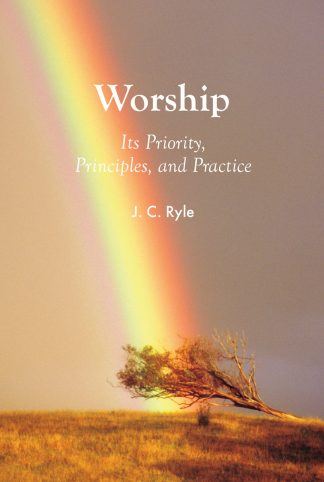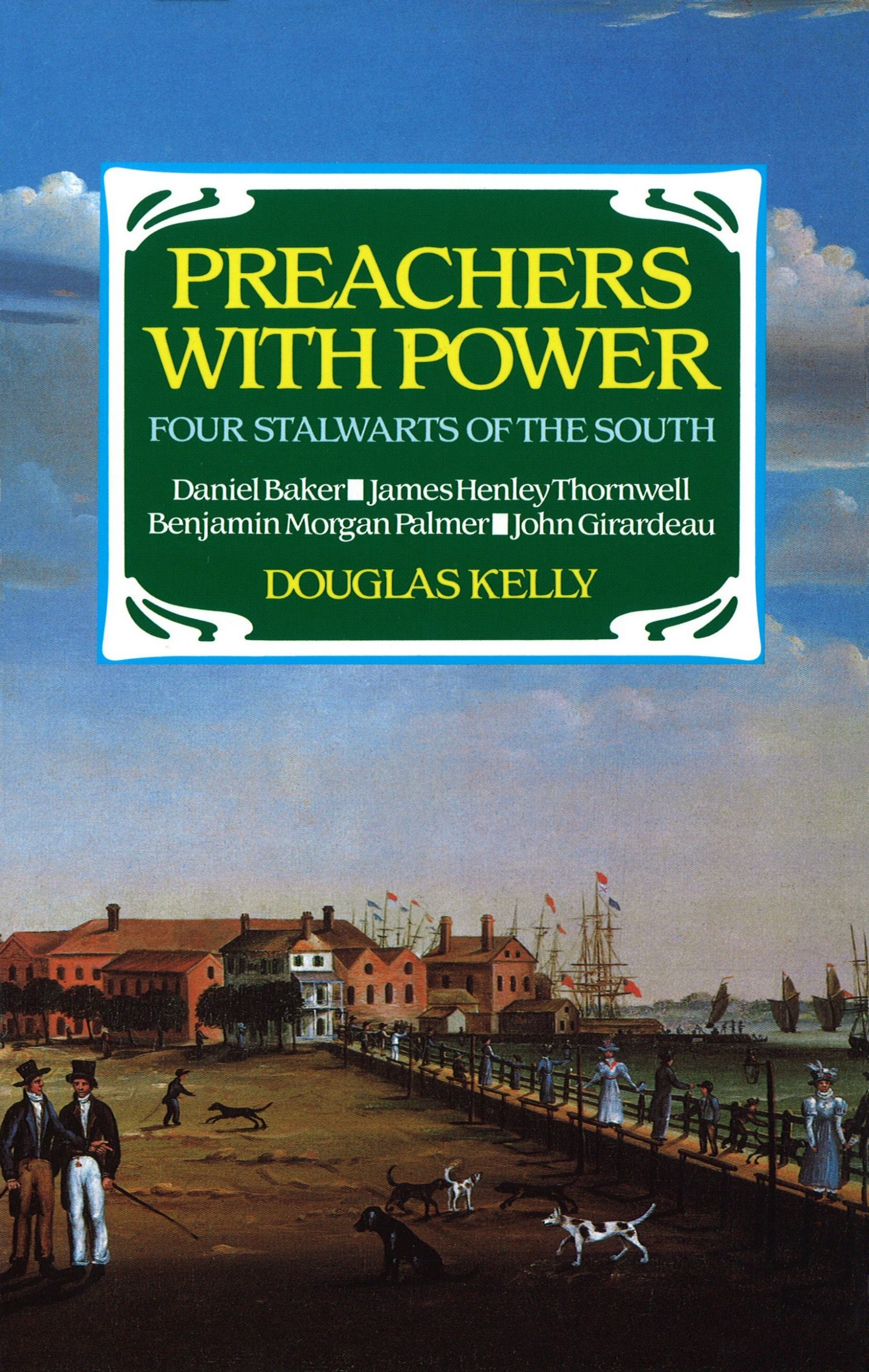The Pastor
His Call, Character, and Work
| Weight | .8 lbs |
|---|---|
| Dimensions | 7.5 × 5 × .9 in |
| ISBN | 9781848717749 |
| Binding | Cloth-bound, eBook (ePub & Mobi), Cloth-bound & eBook (ePub & Mobi) |
| Topic | Preaching & Teaching, Pastoral Theology/Pastoral Helps |
| Banner Pub Date | Mar 22, 2021 |
| Page Count | 272 |
| Format | Book |
| tags | Pastoral Training |
Book Description
Written by faculty and friends of Old Princeton, with an introduction by Sinclair B. Ferguson.
The authors included in this small clothbound collection:
- William S. Plumer (1802-80)
- J. W. Alexander (1804-59)
- Archibald Alexander (1771-1851)
- Charles Hodge (1797-1878)
- Samuel Miller (1769-1850)
- Ashbel Green (1762-1848)
- Nicholas Murray (1802-61)
The authors of The Pastor: His Call, Character, and Work were all men closely associated, either as students, professors, or in one case a director, with Princeton Theological Seminary, which was established in 1812 by the Presbyterian Church of the United States of America. It was founded as a ‘nursery of vital piety as well as of sound theological learning…to train up persons for the ministry who shall be lovers as well as defenders of the truth as it is in Jesus, friends of revivals of religion, and a blessing to the church of God.’
A sample of the Princeton view of the ministry is contained in this little volume. Taken together its chapters form a small instruction manual on the key elements in the work of a minister of the gospel in any age and place.
These pages combine theological acumen, a high sense of purpose, a vision of the privileges of serving Christ, and a recalibration of our whole vision for ministry.
The chapters in this book have been selected from the two-volume Princeton and the Work of the Christian Ministry, also published by the Banner of Truth.
Review
Table of Contents Expand ↓
| Introduction by Sinclair Ferguson | vii | |
| 1. | The Scripture Doctrine of a Call to the Ministry -- William S. Plumer | 1 |
| 2. | The Lord Jesus Christ the Example of the Minister -- J. W. Alexander | 31 |
| 3. | On the Importance of Aiming at Eminent Piety -- Archibald Alexander | 49 |
| 4. | The Character Traits of a Gospel Minister -- Charles Hodge | 67 |
| 5. | The Pastoral Office -- Archibald Alexander | 89 |
| 6. | Rightly Dividing the Word of Truth -- Archibald Alexander | 119 |
| 7. | Holding Fast the Faithful Word -- Samuel Miller | 135 |
| 8. | Christ Crucified the Characteristic of Apostolic Preaching -- Ashbel Green | 179 |
| 9. | The Ministry We Need -- Nicholas Murray | 211 |
| Biographical Sketches of the Authors | 235 |
Related products

Description
Book Description Written by faculty and friends of Old Princeton, with an introduction by Sinclair B. Ferguson. The authors included in this small clothbound collection: William S. Plumer (1802-80) J. W. Alexander (1804-59) Archibald Alexander (1771-1851) Charles Hodge (1797-1878) Samuel Miller (1769-1850) Ashbel Green (1762-1848) Nicholas Murray (1802-61) The authors of The Pastor: His Call, […]

Description
Book Description Written by faculty and friends of Old Princeton, with an introduction by Sinclair B. Ferguson. The authors included in this small clothbound collection: William S. Plumer (1802-80) J. W. Alexander (1804-59) Archibald Alexander (1771-1851) Charles Hodge (1797-1878) Samuel Miller (1769-1850) Ashbel Green (1762-1848) Nicholas Murray (1802-61) The authors of The Pastor: His Call, […]

Preachers With Power
Four Stalwarts of the South
Description
Book Description Written by faculty and friends of Old Princeton, with an introduction by Sinclair B. Ferguson. The authors included in this small clothbound collection: William S. Plumer (1802-80) J. W. Alexander (1804-59) Archibald Alexander (1771-1851) Charles Hodge (1797-1878) Samuel Miller (1769-1850) Ashbel Green (1762-1848) Nicholas Murray (1802-61) The authors of The Pastor: His Call, […]







Cary Bethune –
I thought this a wonderful read. As Sinclair Furguson stated in the introduction, this book is a “sine qua non” (an essential element) to all Christian ministers. As I am not a minister and have never heard a sermon on the “call to the ministry,” I was mesmerized by the discourses of each minister.
I found it quite interesting as William Plumer discussed the possibility of any man being called and the “how” men are called to ministry. Not by extraordinary means, but the same way He calls us to himself. Beautiful.
The simplicity of James W. Alexander’s sermon on how ministers should follow Christ’s example and use Scripture as Christ Jesus used the source of Truth in His preaching was refreshing. This sermon inspired me to memorize more of God’s Word.
Archibald Alexander was featured in 3 chapters. His sermon on Eminent Piety reminded me of Charles Spurgeon’s book, “The Soul Wnner.” They we’re both of the same opinion, preaching with piety brings the best results as it allows the Holy Spirit to work. In his second sermon, “The Pastoral Office,” he painted a picture of how the minister and the congregation should have a deep love for Christ Jesus. With this love, you will be more than able and willing to work for Him and give up worldly desires. In “Rightly Dividing the Word of Truth,” he uses God’s Word to show the minister how to feed the babes and the mature Christian. He, again, goes back to humility and teaches us how to be students again (even when you are the teacher, you can learn from your student).
In “The Character Traits of a Gospel Minister,” by Charles Hodge, he touched on a subject of great importance to ministers and every Christian. Determine yourself to be moral and do the right thing, especially when God is the only one watching. It is usually in the small matters where we fall short, but this is where we live as Christians (Like being on time to an event, or seeing trash on the ground and picking it up. We do these small deeds for the Lord, not for anyone else, but out of gratitude for His amazing grace).
“Holding Fast the Faithful Word,” by Samuel Miller, exhorts the reader to diligently impart the Word in sound doctrine and maintain it for themselves so as to impart this knowledge to their hearer.
I always love a sermon with Christ crucified! In, Christ Crucified the Characteristic of Apostolic Preaching by Ashbel Green, he explains the power in preaching Christ crucified. This reminds me of reading Billy Graham’s autobiography. He was told by a friend to preach the cross, Billy! Their is no power in your preaching without the cross! Ashbel Green knew this about 100 years prior to that conversation. Any Christ follower can see the wisdom in this great sermon.
The last chapter is, “The Ministry We Need,” by Nicholas Murray. Murray warns of the fallacy in being negligent in your study of the Word, and becoming a people pleaser. He makes many good points of which include being vigilant in your piety, being ready to serve at all times for your Master, and preaching the Gospel to everyone (not just the rich). He exclaimed the high calling that every preacher has. It is above everything, all occupations! Preaching the Word “is the point to where all the attributes of God converge into a blaze of glory.”
My overall view of this book: Great for any Christ follower to read. We could all use more piety and less of the world. Each sermon was full of useful information to inspire any Christian minister or Christ follower to “get out of your spiritual rut,” and remember “why” you came to the ministry / became a Christian.
My prayer is that you read this book and make your walk with Him closer and closer each day.
“And it is my prayer that your love may abound more and more, with knowledge and all discernment, so that you may approve what is excellent, and so be pure and blameless for the day of Christ, filled with the fruit of righteousness that comes through Jesus Christ, to the glory and praise of God.”
Philippians 1:9-11 ESV
Ben House –
The Pastor: His Call, Character, and Work by Faculty and Friends of “Old” Princeton is published by Banner of Truth.
Predictable! Delightfully so. That is how I would characterize this collection of sermons and talks given back in the day at Old Princeton.
Princeton Theological Seminary was the moral compass, the lodestone, the North Star, the pillar and ground of theological and Biblical truth in the 19th century. Under such theologians as Archibald Alexander, Samuel Miller, Charles Hodge, and others, the seminary dug its heels in and refused to budge when confronted with the flurry of theological heresies, social currents, and societal upheavals of the day.
Princeton Theological Seminary was not a cultural backwater, however. The men who taught there were students of the latest discoveries in theological and linguistic research. They kept abreast of the scientific advances and challenges of the time. They interacted with the political events.
But Princeton Seminary had one primary goal. It sought to train men to be faithful pastors. Of course, this entailed language studies. It also took students through the depths of theology, homiletics, and Scriptural exegesis. Such were the expected tools and steps for those who wanted to be Presbyterian pastors. There was no place for the illiterate man who be converted one Sunday and feel compelled to start preaching the next Sunday. Rather, one had to study hard and deep and be grounded in the Word of God and able to faithfully communicate it.
The gist of the nine addresses in this book is not on academic or scholarly attainments. Rather, the focus was on the pastor’s heart. Godly, pious, faithful men were the only ones who were apt to be ministers. Each pastoral leader in these essays exhorts his hearers to be faithful and focused in following Christ.
That is why I said that this book is predictable. There are no surprise heresies lurking between the lines of some speculations regarding Scripture. This book would not satisfy the one who was looking for seeds of deviation from the Scriptural and Westminster-based norms. These were sound men exhorting the next generation to remain sound.
As such, these essays are good devotional reading. One wanting to explore theological issues would need to look at other Princeton works, such as Charles Hodge’s Systematic Theology or the works of Benjamin Warfield. The amazing thing is that while it was the mind that the seminary was filling and expanding, it was the heart that was the central concern. As a former pastor, I could feel the need to hear these kinds of words and exhortations again and again.
For those who want to know more about the work and legacy of Princeton Seminary, I will mention the following books, which are also Banner of Truth titles:
The Princeton Seminary Set
David Calhoun has written a definitive history in two volumes of the seminary and the men who served there. This is an outstanding historical study. Volume 1 covers the years 1812 (the beginning) to 1868 and volume 2 takes the story up to 1929. The later stages of the seminary’s history are rather sad because of the death of Benjamin Warfield and the internal battles over theological liberalism.
Princeton and the Work of the Christian Ministry
Princeton and the Work of Christian Ministry is a two volume set from which The Pastor was taken. The 255 pages of this shorter work can easily whet the appetite for the 1500 pages of the larger set.
Pastor-Teachers of Old Princeton
Pastor-Teachers of Old Princeton is subtitled “MEMORIAL ADDRESSES FOR THE FACULTY OF PRINCETON THEOLOGICAL SEMINARY 1812-1921.” Once again, source materials are ready at hand for readers in our day to be reminded and grounded in the historic teachings of Reformed Christianity.
Finally, Banner of Truth and other publishers have printed a number of works by such men as Charles Hodge, A. A. Hodge, Archibald Alexander, Samuel Miller, Benjamin Warfield, J. Gresham Machen, and others who were pastors/scholars/teachers/students of the old Princeton tradition.
These works do have relevance as historical documents, but their greatest value is in the true and sound theology they contain and remind us of. We are living in a Christian Renaissance. We not only have many good and faithful preachers and teachers in our day, but thanks to works like the book reviewed here, we have the wealth of the past at our fingertips.
Tyler Johnson –
This book is phenomenal. I am a seminary graduate and currently interviewing with a church to be their pastor. I read this book a couple weeks ago and it was so encouraging for me in my situation. You will not find many books (if any) on pastoring today that are anywhere close to as good as this. The high view of the ministry is refreshing and gives you a sense of the eternal weightiness of the pastor’s responsibilities. After reading this book, I was left with a desire to read more of the writings of each contributor. I’m thankful for Banner of Truth for producing quality books as these. Keep up the good work!
andrew_schreiber –
What a wonderful little book! It is both convicting and encouraging at times. As a pastor, I have read a great many books on pastoral ministry, but this one is now easily one of my favorites.
It is not an A-to-Z compendium of the ‘who, what and how-to’ of ministry, but it hits enough of the high points that it serves as a terrific introduction to these subjects.
I may have to re-read this volume every once in a while in the years to come just for encouragement’s sake. If you are currently serving as a pastor or studying in preparation for it, I would highly commend this little book to you.
David Nalley –
The book, The Pastor: His Call, Character, and Work, is a wonderful book of collected writings. This book is a smaller collection from the two volume work, Princeton and the Work of Christian Ministry. I am thankful for this work, and the impact it has had on me as a pastor. This book both encouraged and challenged me as I seek to shepherd God’s flock. I had not heard of everyone who contributed to this book, but I am thankful for their ministry and heart for Christ. Overall, this book seeks to encourage and teach pastors more about the ministry that God calls them to. Subjects like calling, living as examples, preaching and teaching, and overall ideas of ministry were written about.
One of my favorite chapters is entitled, “On the importance of aiming at eminent piety,” written by Archibald Alexander. This chapter alone is worth the price of the book. This chapter taught me that while I need to be focused on the holiness of the flock, I cannot turn away from pursuing holiness myself. Alexander teaches that ministers must keep a watch on their own pursuit of holiness in Christ, in order to better serve the Church of Christ. He says, “Nothing upon earth is so lovely as the mild but steady light of a holy life” (63). May this be true of all Gospel ministers.
I would recommend this book to all pastors, and all who desire pastoral ministry. This work proves to remind the Gospel minister that holiness, sound doctrine, and preaching Christ crucified are vitally important in the Gospel ministry. I am thankful for Banner of Truth for publishing this work, and I look forward to reading the larger 2 volumes.